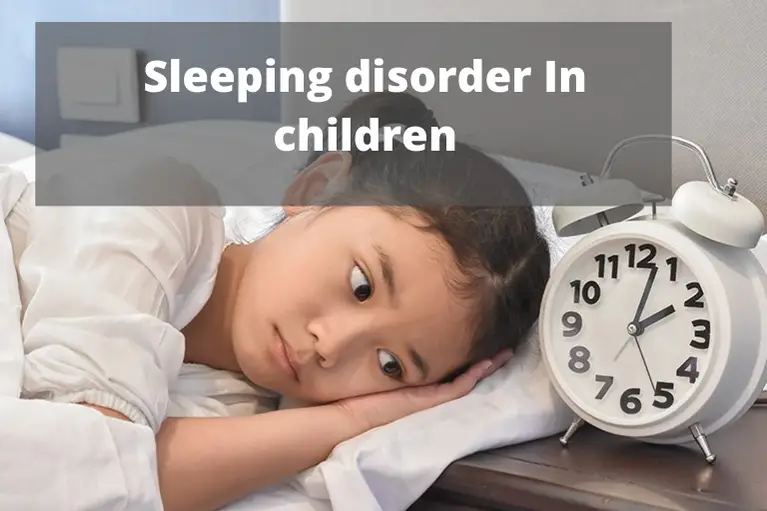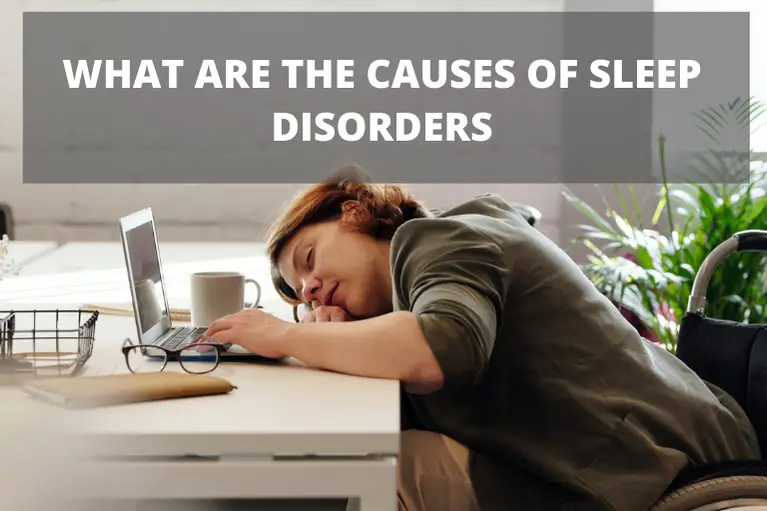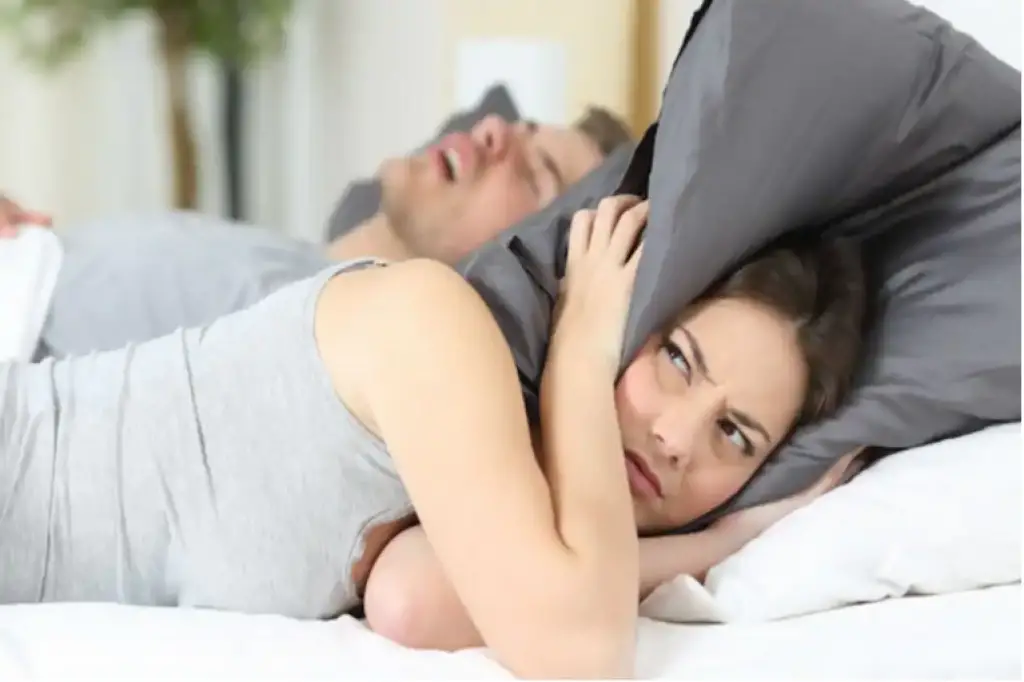Sleep Disorders can provoke bad health conditions. It is one of the leading causes which affect both the mental and physical health of a person. Sleep is essential for proper body functioning.
Wondering what the causes of sleep disorders are. First, let me tell you there are multiple factors involved in disturbing the normal wake-sleep cycle. Stress, bad sleeping habits, poor diet, and medication are significant factors. A few other risk factors also affect. But before digging directly into causes, let’s have a look at its symptoms.
What is a sleeping disorder?
Sleeping disorder is when a person is having difficulty in the amount and quality of sleep he gets. It results in functioning impairment and daytime stress as well. Sleep-wake disorders result from different health conditions, anxiety, mental health, cognitive disorders, and environmental factors.
What are the symptoms of sleeping disorders?
There are several different symptoms of sleeping disorders, and they vary from person to person. Some of the common signs that almost every person experiences include feeling sleepy during the day while having trouble sleeping at night. Sometimes people may fall asleep at different times, like driving. Some people may also experience difficulty while sleeping and have an uncomfortable urge of movement at sleeping time. Irregular sleep and wake cycles are familiar with some bothersome and unusual bothersome experiences at night.
Stress
Too much stress in life affects normal body functioning, as it can stimulate abnormal reactions in the body. And this results in underlying body conditions. For example, stress is directly involved in the disturbing sleeping cycle. Stressed people feel trouble falling asleep. While talking about stress, a lot of reasons come into mind.
Worries about your work, health, or family keep your brain active all the time. It typically increases mental stress. Resultantly, increased stress level provokes sleep disorders. Likewise, stressful life incidents like divorce, losing someone special, or accidents induce sleeping disorders.
In contrast, lack of sleep can itself excite body stress levels. It ultimately causes insomnia in individuals. Stress mainly induces short-time sleeping disorders, but fortunately, these disorders can be cured with time. But chronic stress levels lead to long-term sleep disorders.
Poor eating habits

Overeating at night is one of the significant factors in disturbing sleep patterns. Having light snacks before going to bed is OK. But heavy metal results in eating disorders. You may feel uncomfortable.
Usually, fast foods make the stomach upset. People mostly experience heartburn, acidity in the stomach, or nausea. These provoking conditions result in sleep disorders. You can’t even sleep while having eating disorders. Sometimes, the backflow of food through the esophagus also results, which disturbs sleeping patterns.
Researches show that eating pizzas, burgers or fried things increases stress level and depression. However, eating at night, especially before bedtime, produces worse results. Briefly saying poor eating habits give rise to many sleep disorders in one way or the other.
Nicotine, Soft drinks or Alcohol Consumption
Drinking coffee, tea, or soft drinks at night interferes with your sleep patterns. These all are stimulants. They create trouble for people to fall asleep. Moreover, the nicotine present in cigarettes and tobacco interrupts the sleep time it takes in the evening.
Alcohol consumption is hazardous for health. It is sedative in nature and causes feeling sleepy all the time. Long-term consumption has terrible impacts on the health system. As too much intake affects normal body functions. If it takes at bedtime, it may help to fall asleep. But later on, you will be awakened at midnight as alcohol disturbs deep sleep patterns.
Taking soft drinks like colas at night causes frequent urination at night as they are diuretic in nature. You may have to go to the washroom frequently if taking it before bedtime. It induces sleep disorders. Caffeine keeps the mind active even at night, contributing to troubled sleep.
Bad Sleep Habits
Poor sleep habits like sleeping on the stomach put pressure on your stomach. It results in eating disorders. In addition, you may feel troubled breathing during this condition.
Sleeping late at night interferes with standard sleep patterns. Watching TV, playing video games, or using mobile at bedtime results in trouble sleeping the whole night. Research shows that using mobile phones before bedtime sends wrong signals to the brain. Brain cells pretend to have morning time even at night time. As a result, you will feel interference in falling asleep timely.
Walking, talking, or nightmares during sleep affect sleep a lot. Besides these, snorting also interrupts sleeping patterns. Therefore, people, who have a snorting bed partner, may also experience trouble sleeping.
Poor Physical Health
Many chronic diseases like cancer, heart problems, diabetes, hepatitis, and many others cause sleep disorders. Patients can’t sleep properly. They feel uncomfortable the whole night.
Restlessness disturbs sleep patterns. Other poor health conditions like headaches or migraines cause sleep disorders. Research shows that about 80% of individuals with poor physical health have trouble sleeping at night.
Genetics
There are many causes of sleep disorders. Genetics is one of them. Some genetic disorders may contribute to disturbing the normal sleep cycle. For example, walking or talking during sleep is also a common genetic cause. It sometimes results in sleep paralysis.
Families having a sleep disorder in one member may have more chances to affect other members. For example, narcolepsy is the most common sleep disorder due to genetic causes.
Frequent Urination
Drinking water before going to bed causes frequent urination. You have to be awakened if you face this condition. Going to the washroom repeatedly results in sleep disturbance.
Other factors also involve frequent urination. These may be urinary tract disorders, kidney malfunctioning, or hormonal imbalance. Immediately visit your doctor if you experience frequent urination accompanied by blood.
Hectic Night Schedule

Working at night disturbs the biological clock of the body. People who have a hectic schedule at night time always experience troubled sleeping. We all know that days are for working and nights for taking rest.
Working on a laptop or computer at night disturbs sleep patterns. Additionally, it also affects mental and physical health a lot, especially eyesight. Moreover, any strenuous physical activity also gives rise to sleep disorders.
Medication
Medications play a role in the disturbed sleep cycle as drugs, antidepressants, sedatives, or other medications have side effects. In addition, people who take these types of medicines on a long-term basis have disturbed sleep cycles.
These medications work on the nervous system of individuals. As a result, they feel drowsy during the daytime. They can’t sleep properly during the day or at night. And this gradually leads to insomnia.
Exercise Just Before Bedtime
Exercise just before going to bed has worse effects on health as physical exercise results in muscle stretch and body pain. This condition affects the sleep cycle. However, cardiac exercises have good results in falling asleep as cardio reduces stress levels. That ultimately improves the sleep cycle.
Aging and sleep disorders
Older people experience sleep disorders with increasing age. Many changes occur in their bodies. Their poor physical or mental health causes many problems as people of 60+ age have typical symptoms of disturbed sleeping patterns.
Medications they take at this age also interfere with their sleep cycle. In addition, aged people generally suffer from chronic pain. Therefore, they take a lot of painkillers. Moreover, sedation, as well as drugs, are the leading causes of sleep disorders with aging.
Frequent Naps at Daytime
The human body requires up to 7 to 8 proper sleeping hours. So people mostly take naps during the daytime. These naps are suitable for both physical and mental health. But repeated naps of about 1 or 2 hours disturb the whole sleeping cycle. And this also affects nighttime sleep badly.
Poor Mental Conditions
Depression is among the leading sleeping disorders causes. Firstly, it affects the mental condition of a person. Secondly, it causes physical weakness. Getting up too early or sleeping too late at night are significant symptoms of depression. Ultimately, this leads to sleep disorders or insomnia.
Other poor mental conditions include anxiety, stress, and bipolar disorders. A little bit of anxiety or work stress or family is common. However, too much stress depresses the body system and cycles badly.
Traveling
Traveling generally disturbs overall body health. For example, daily travel harms mental health, due to which stress levels increase. In addition, muscle pain is expected if you travel a lot. So, this whole condition puts pressure on regular body cycles.
The sleep cycle can also be disrupted by traveling. Traveling in the daytime may be somehow compensated for. But night traveling gives rise to chronic sleep disorders.
Neurological Disorders
Problems associated with the brain result in neurological disorders. These disorders create cardiac discomfort. In addition, it results in producing trouble while falling asleep. Therefore, the quality of sleep also affects a lot.
Autism is one of the neurological problems, and most children are affected by this disease. This disease affects their wake-sleep cycle. Moreover, this may also cause insomnia in children.
We have talked about “what are the causes of sleep disorders?”. These are general causes that affect sleep. Now let’s talk about the reasons, specifically in children, teens, elders, aged people, and pregnant women.
Causes of sleep disorders in CHILDREN and TEENS

Mostly children and teens are night owls. They disturb their sleep cycle badly. The leading cause of disturbed sleep patterns in teens are:
- Late-night sleep
- Getting up late in the morning
About 23% teen population has been affected by sleep disorders. Late sleep and then awakening late the next day disturb the natural biological cycle. On the other hand, children go to school daily in the early morning. Therefore, they have to get up early. Sleeping late and getting up early reduces their resting time. It harms their health.
Stress is also a leading cause in both children and teens. For example, home workload, exam stress, or social obligations contribute to inducing sleep disorders. Similarly, using electronic gadgets like mobile phones, computers or laptops reduces sleep efficiency.
Causes of sleep disorders in ELDERS
At a younger age, many factors are involved in disturbing the sleep cycle. For example, poor sleep habits, mental conditions, depression, and anxiety affect sleep maintenance. However, insomnia is most common in adults because of their work and family stress.
About 23% to 30% of older adults are affected by sleep disorders. Bad health conditions, mental depression, or social isolation are the reasons. In addition, adults generally remain busy doing work or household chores. And they could not maintain their proper sleep. In this regard, they face trouble sleeping.
With age, a lot of physical changes occur within the body. In addition, elders predominantly suffer from many chronic diseases like joint pain, acute headache, or any illness that interfere with their sleep. Besides this, they take several medications. These sedative drugs or painkillers affect their nervous system.
Aged people have less capacity to cope with symptoms. Their immune system becomes weak with time. Thus, these physical and mental illnesses lead to sleep disorders. Poor sleep or insomnia is most common in aged people.
FAQ’s about sleep disorders
Why do sleep disorders occur?
Sleeping disorder is a condition that has a frequent effect on the quality of sleep. Some people have random difficulties in sleeping, while others have constant sleeping trouble. Generally, sleeping disorders are due to anxiety, stress, some medical issues, arthritis, or many environmental factors.
Is there any cure for sleeping disorders?
Once you are getting treatment on the cause of your sleeping disorder, it may eventually go. However, when you don’t know the exact cause of your sleeping disorder, doctors suggest some medical treatment with some lifestyle changes.
What are the common sleep disorders?
Some most common sleep disorders include
- Narcolepsy
- Sleep apnea
- Insomnia
- Restless leg syndrome
Can sleep disorders go away on their own?
Yes, in mild cases, it goes away on its own. But unfortunately, in many cases, it doesn’t vanish on its own. So you have to make some lifestyle adaptations, lose weight in case of obesity, get rid of alcohol, and many more.
Want to Know more Secretes for Health living click here
Latest post





